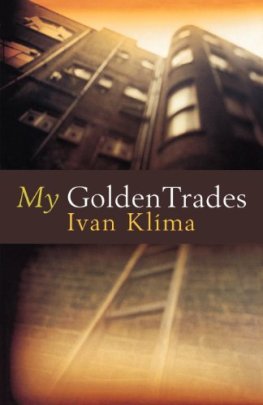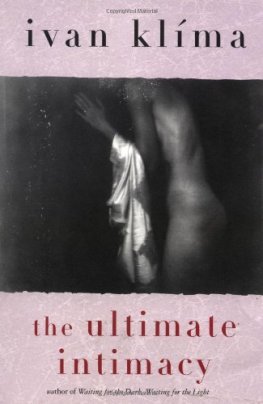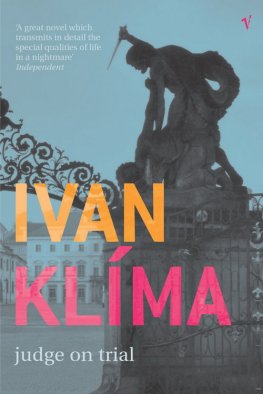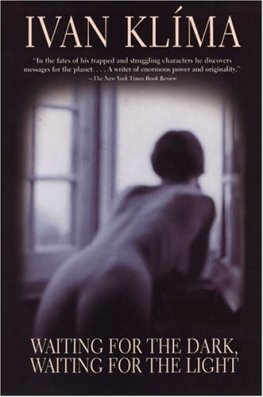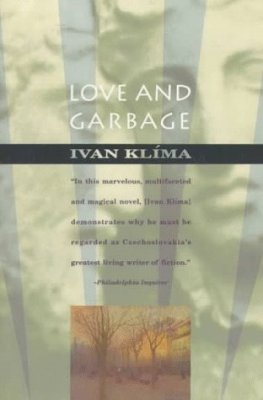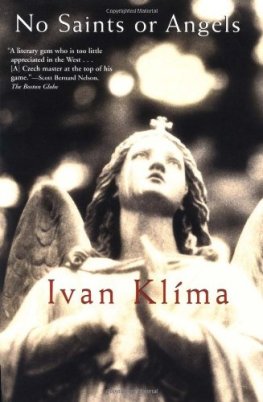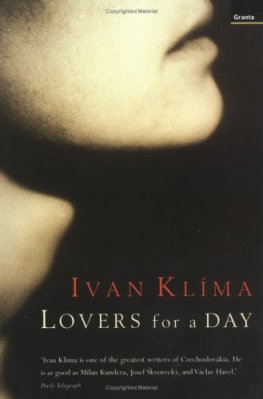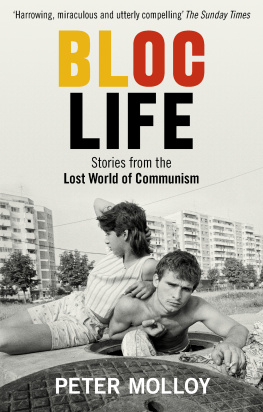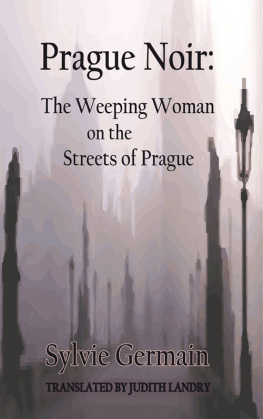Ivan Klima - My Golden Trades
Here you can read online Ivan Klima - My Golden Trades full text of the book (entire story) in english for free. Download pdf and epub, get meaning, cover and reviews about this ebook. year: 1998, publisher: Granta UK, genre: Prose. Description of the work, (preface) as well as reviews are available. Best literature library LitArk.com created for fans of good reading and offers a wide selection of genres:
Romance novel
Science fiction
Adventure
Detective
Science
History
Home and family
Prose
Art
Politics
Computer
Non-fiction
Religion
Business
Children
Humor
Choose a favorite category and find really read worthwhile books. Enjoy immersion in the world of imagination, feel the emotions of the characters or learn something new for yourself, make an fascinating discovery.
- Book:My Golden Trades
- Author:
- Publisher:Granta UK
- Genre:
- Year:1998
- Rating:5 / 5
- Favourites:Add to favourites
- Your mark:
- 100
- 1
- 2
- 3
- 4
- 5
My Golden Trades: summary, description and annotation
We offer to read an annotation, description, summary or preface (depends on what the author of the book "My Golden Trades" wrote himself). If you haven't found the necessary information about the book — write in the comments, we will try to find it.
My Golden Trades — read online for free the complete book (whole text) full work
Below is the text of the book, divided by pages. System saving the place of the last page read, allows you to conveniently read the book "My Golden Trades" online for free, without having to search again every time where you left off. Put a bookmark, and you can go to the page where you finished reading at any time.
Font size:
Interval:
Bookmark:
Ivan Klima
My Golden Trades
The Smuggler's Story
I HEARD A familiar voice coming over the phone. 'Santa Claus here. Got an hour this afternoon?'
I had.
'Sensational,' said the voice on the other end, in an inimitable accent that could only belong to someone with a Mexican father and an Indian mother. Then he hung up. He obviously believed that the briefer our conversation was, the less suspicion it would arouse in anyone listening in. Whenever he announced himself as Santa Claus, it meant that he'd returned from one of his frequent business trips abroad and was bringing me books.
It was eleven-thirty and snowing heavily. My wife had taken the car earlier that morning, and it would be noon before I could reach her. I'm not very fond of driving, but I had no idea how many bags of contraband St Nicholas had purchased and brought in. He was hard to fathom. There could well be more than I could carry.
I had met Nicholas by accident. The water-pump on my ancient Renault had given up and, after the car had been immobile in the garage for three months, someone gave me Nicholas's name and address, saying that he often travelled out of the country and would certainly bring me
a new pump.
Why should he do that, when he didn't even know me?
He would do it because I was a writer. He loved literature or, to be more precise, he worshipped his wife, who loved literature.
And how would I pay him?
I wasn't to worry about that: for a rich businessman a spare part was no more than a kilo of apples would be for me. Give him a signed copy of one of your books. Or invite him to lunch.
I hesitated for almost a month, but when the water pump for my car was still unavailable, I rang the stranger's doorbell.
In a week I not only had my pump, I had a package of books as well.
He smiled. He was tall, greying, and had a dark complexion. He said it was a pleasure to be able to help me. He held art in the highest esteem, he said, and he understood what a difficult situation I was in.
I gave one of my books to him, with a dedication, and I invited him and his wife to dinner.
Having grown up in an era of paranoia, I was guarded during their visit and did not reveal the secrets of my writing the only secrets I could have betrayed. But Nicholas did not pry. For a while, he spoke about the world of business, something that for me was exotic and far away. After that his wife, Angela, did most of the talking. She was at least twenty years younger than he was and looked like the angel in her name. We talked about Borges, Mrquez and most of all about Cortzar's Rayuela, which both of us admired though we disagreed somewhat over the scene in which the heroine crawls across some rickety
boards stretched between two windows four storeys above the ground merely to satisfy the whims of two strange and indolent men, bringing them a package of mate and a handful of nails across the abyss in the punishing heat. Angela saw in that scene an image of the slavish position of women in her country, while I argued that the scene was meant to represent the heroine's inability to choose between the two men. At the same time, I suggested, the author was paying tribute to women for their courage: women are generally capable of taking risks; men can only admire them for it.
Angela conversed and listened with an intensity that had inspired me to talk about writing, which I normally avoid doing. The conversation seemed to make her happy, and her husband looked content as well.
A month later he unexpectedly called and brought me a package of books, most of which were in Czech. He even brought two or three copies of the same books. He knew, he said, that some of my colleagues were in the same position as I was, and he was sure the books would interest us.
Certainly, but what gave him the idea to bring them to us?
Angela claimed that this was the only way we'd ever get to see such books. I allowed that this was so, thanked him, and distributed the books among my friends.
Some time later he brought me two parcels, not only books this time but also a few magazines, which were even harder to come by. I was delighted, but at the same time I began to feel slightly afraid.
I remembered how, 247 years ago, Jik Vostr, a Protestant missionary, had been caught trying to smuggle
forbidden books from Saxony into Bohemia. They threw him straight into prison but, of course, what interested them most was who the books were for. The jailer pretended to be a friend and told the young, inexperienced smuggler that he would take a letter out for him. That letter, which I recently read in a collection of documents in Litomyl, spoke to me in a language I knew well:
Kladivo,
I am writing to you from my prison cell with a plea. Should there be any books still in your possession I pray you hide them safely away. And make this known to those you know. I, a prisoner in the name of the Lord, pray you to do this in His name. I assure you I have betrayed no one, so look that you comport yourself likewise. Read this letter, and then give it to him who is faithful. . My wife wasn't at work; she had just gone to pick up the
washing from the laundry. Another delay.
I was anxious because Nicholas had asked me to come
in the afternoon, when he wasn't usually at home. He was
probably worried that if he left it till the evening, when he
came home from work, he could be followed. It
occasionally happened to him, as it did to every
foreigner and to everyone else in the country. His tail
would stick with him right up to the building where he
lived and then stay there, watching, or at the most retreat
to the tennis-courts at the top of the street. From there, it
was easy to keep an eye not only on the matches but also
on the entrance to Nicholas's building. There they would
stay until they were relieved or called off. I would certainly
not want to appear in their sight, let alone be caught
carrying off a bag of books.
I don't know if I can speak for Nicholas, but personally I had never imagined that one day I would take up smuggling. By the rules that apply in most of the world, smugglers are devious people, with a close knowledge of their territory and their pursuers; men and women with nerves of steel and contempt for the law, both the kind that is written in the statute book and the kind that, although it is not written down anywhere, we sense stands above our every action. I have contempt for neither kind of law, but in our situation, where they contradicted each other, I had to choose between them. Thus, despite my natural disinclination, I have more than once found myself prepared to receive smuggled goods. I find consolation in the fact that, in the conditions prevailing here, it is rare for someone to be doing what he was trained to do, or what he is suited for.
Not long ago Nicholas brought me enough books to fill two bags. Dragging them on to the tram, I looked so suspicious, so desperate even, that people began staring at me, which didn't add to my peace of mind. To make matters worse a man I'd noticed earlier got into the same car as I did. I put one of the bags on my lap and put the other one under the seat so I wouldn't look so burdened. At the same time, I racked my brains trying to think what I'd do and say if the man really was who I feared he was. What if he wanted to search my bags? As it turned out, he didn't, but when I got out of the car I was so preoccupied that I forgot about the bag under the seat. I was already on my way out when a kind woman called me back. Is there any way I can thank her enough? In the bag I was apparently determined to leave behind on the tram were all
my identification papers. I don't know how I'd have explained the contents of the bag to those who consider all books that have not passed through a censor's hands to be contraband.
Font size:
Interval:
Bookmark:
Similar books «My Golden Trades»
Look at similar books to My Golden Trades. We have selected literature similar in name and meaning in the hope of providing readers with more options to find new, interesting, not yet read works.
Discussion, reviews of the book My Golden Trades and just readers' own opinions. Leave your comments, write what you think about the work, its meaning or the main characters. Specify what exactly you liked and what you didn't like, and why you think so.

